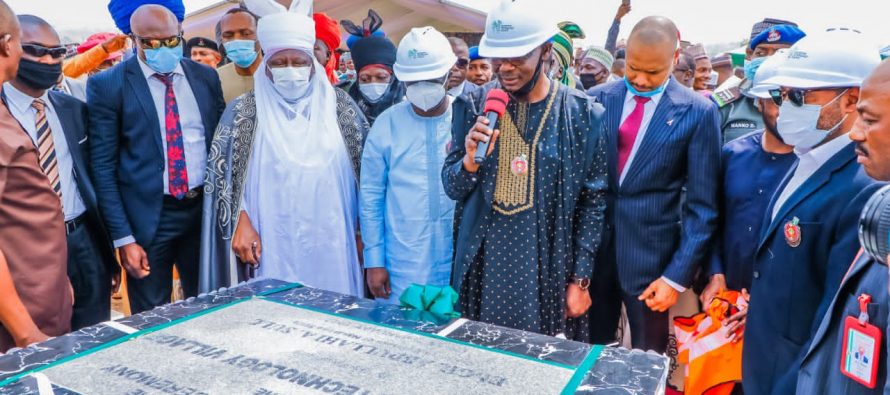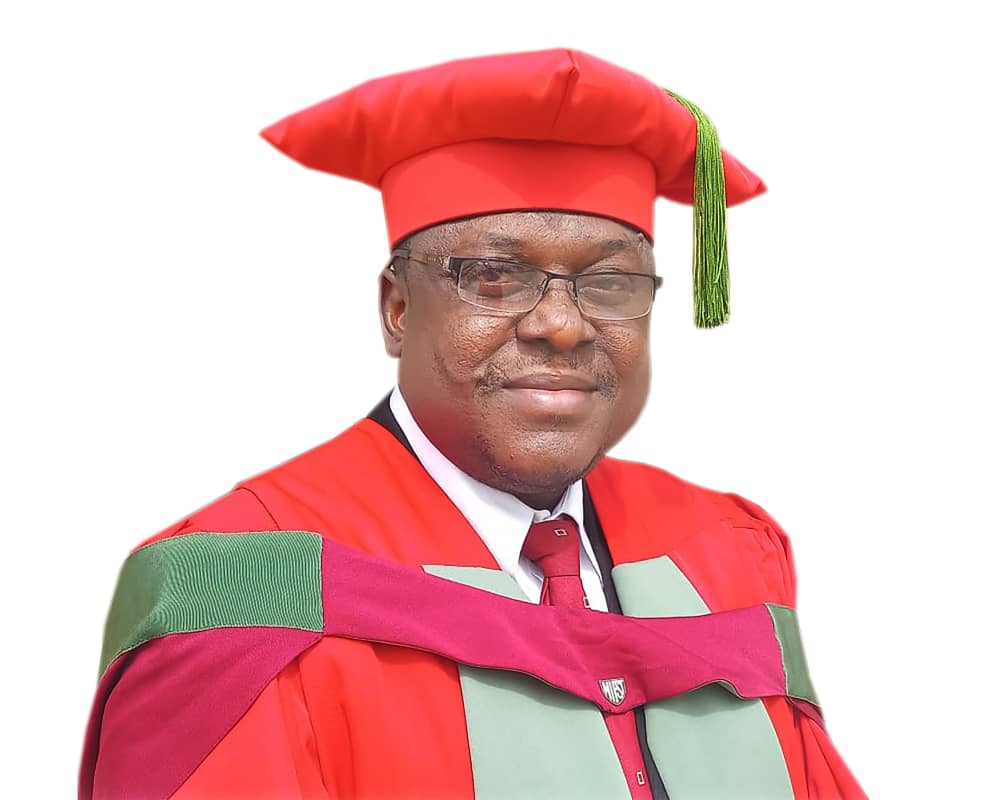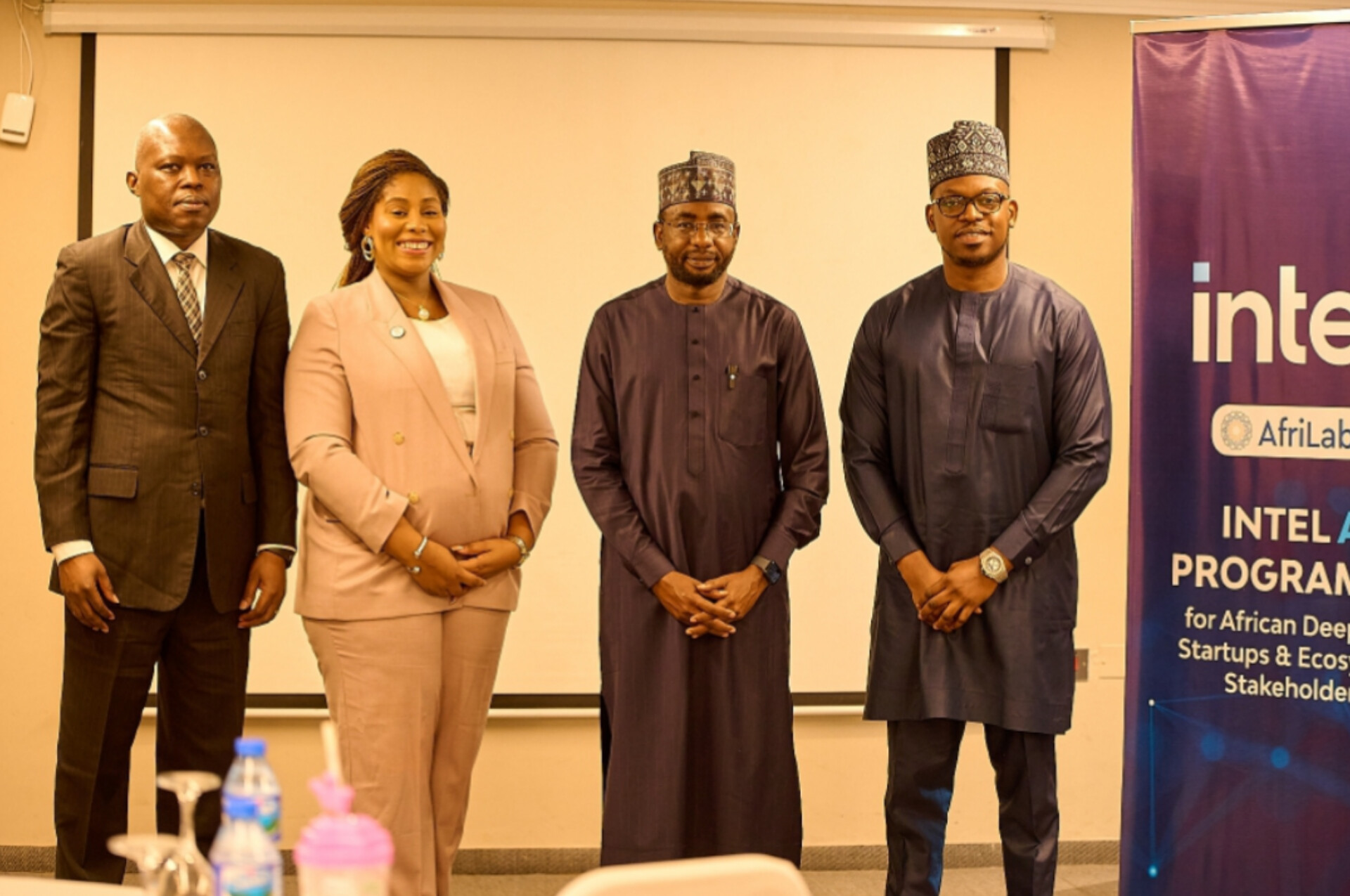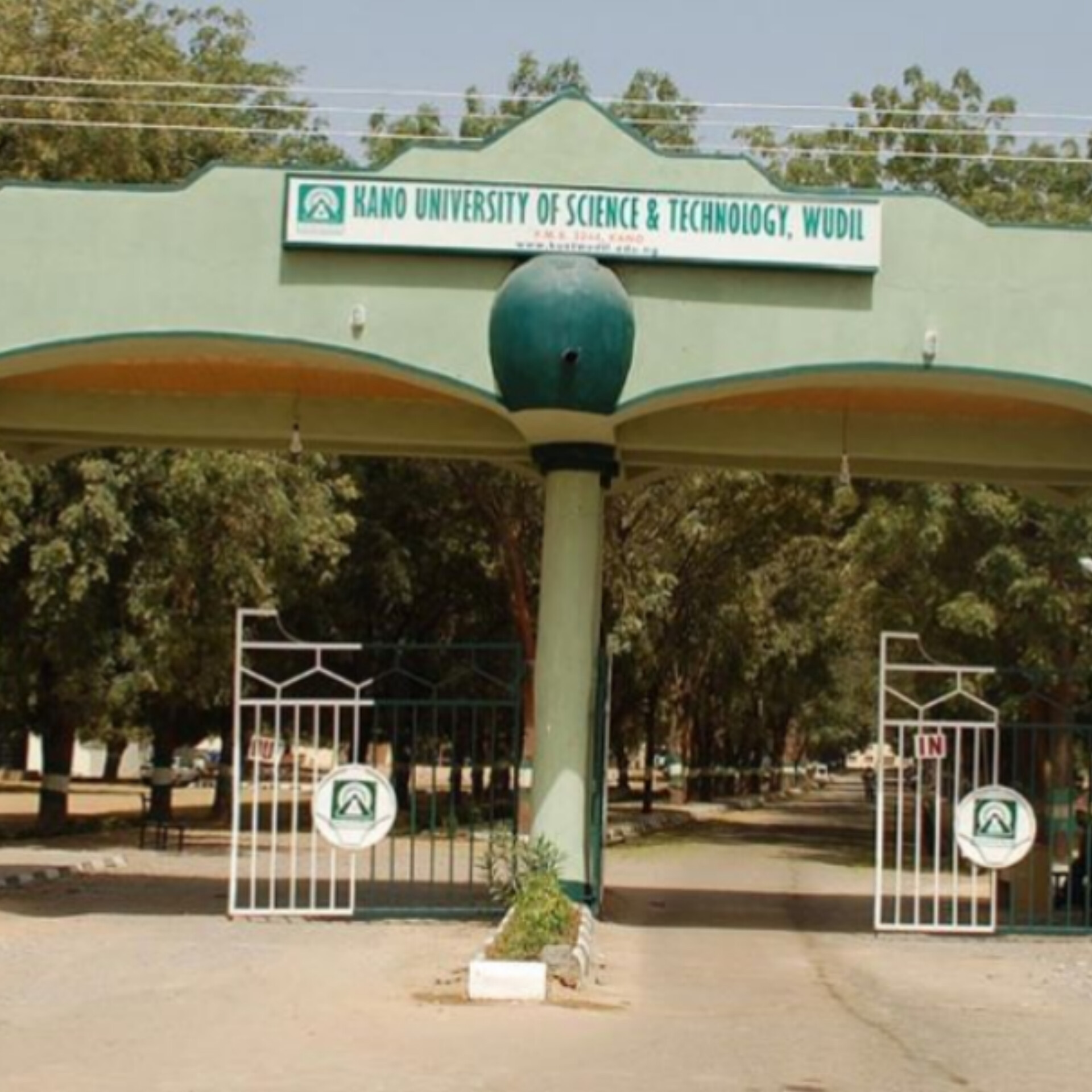Science and Technology
N30bn Technology Village: Nasarawa Gov Performs Ground-Breaking Ceremony

The construction of N30bn Nasarawa Technology Village, through a public, private partnership (PPP).has commenced with the groundbreaking at an elaborate ceremony at the site of the project, in Aso Pada, of Karu Local Government Area, on Thursday by Governor Abdullahi Sule.
The governor pointed out that the event, is a manifestation of the development roadmap of his administration, as encapsulated in the Nasarawa Economic Development Strategy (NEDS).
He said the state government committed to attracting private investors to come in to develop every sector of the economy of the state.
Sule indicated that the technology village project will be a hub for young men from the state to develop their potentials.
He commended the Managing Director of ABS Blueprint Limited, Mohammed Yamusa, an indigene of Azara, Managing Director Nasarawa Investment Development Agency (NASIDA), Barrister Ibrahim Abdullahi, for having the vision and the skill for attracting the consortium that will execute the project.
“The dream is to come here and by the time we complete this project, in the next 3 to 5 years, we will be able to develop potential billionaires,” he said.
The governor reiterated his earlier position that he didn’t venture into politics in order to make money but to leave behind a legacy and to groom another set up people to takeover and perform even better than him.
He however noted that, it’s not sufficient to have a vision but that efforts must be sustained towards bringing the project to reality.
Engineer Sule recalled that during the signing of the MoU with ABS last year, he challenged the company on making sure the project comes to fruition.
According to him, his immediate past predecessor, Senator Umaru Tanko Al-makura, had set a precedence through the Seeing is Believing mantra, such that if the people did not see the project, they don’t believe.
The governor explained that funds to execute projects have always been the problem but that drawing from what is happening globally, the state will not use its resources to execute the Nasarawa Technology Village but will rely on funding by investors.
He promised to strictly monitor the project through its stages of development.
Minister for State, Ministry of Science, Technology and Innovation, Barrister Mohammed Abdullahi, commended the Nasarawa State Government, for initiating a project that will be technologically driven, in line with the policy of the Federal Government towards making Nigeria a global competitor in technology.
While assuring the state government of support from the ministry, the minister said President Muhammadu Buhari approved N150bn in the 2022 Budget for the ministry, which the state can leverage and to tap from the available resources.
On his part, Managing Director, Taj Bank, Hamid Joda, commended Engineer Sule for having the vision to envisioned a project like the Nasarawa Technology Village, especially in the Abuja/Karu corridor.
Joda described the Abuja/Karu corridor as the biggest in Nigeria, with so much potentials, with millions of Nigerians living in Nasarawa State.
“We need to take advantage of the Abuja environment to develop this corridor. The time has come for us to begin to look at this corridor and we can develop it,” he said.
He however noted that, it’s one thing to have a vision and another to execute the vision.
Joda said his bank is on ground to provide or give suggestions regarding how capital can be raised to finance the project, citing the Federal Government’s Sukuk, as ideal for implementation in Nasarawa State.
He therefore called on the governor to give the private sector, especially the non interest banking industry the opportunity to showcase what can be done to harness the opportunity of Sukuk.
Also, Managing Director, ABS Blueprint Limited, Mohammed Yamusa, explained that the Nasarawa Technology Village, is an innovative housing estate, with 1000 housing units comprising of blocks of 1&2 bedroom flats, 2 bedroom bungalows and 3 bedroom detached houses.
The hub will also have a commercial centre, nursery/primary school, hospital, fire and police station.
The NTV will equally have training facilities, offices to house local and international IT companies hostel, for the resident programme by Decagon Learning Institute, to train up to 2000 students yearly as software engineers.
Another feature of the NTV will be a private power plant to supply uninterrupted power supply. He however noted that there is need to build an alternative route to link Aso Pada closer with the FCT.
In separate remarks, MD NASIDA, Barrister Ibrahim Abdullahi and MD Nasarawa Geographic Information Service (NAGIS), Mr. Sonny Agassi, commended Engineer Sule for turning the state a top investment destination. Mr. Agassi particularly commended the governor for leveraging on his private sector experience to execute a PPP for the sake of the state. “Aso Pada was first concieved in 2000,” he said.
Speaking on behalf of the people of the community, the Etsu Karu, HRH Pharmacist Luka Panya Baba, thanked the governor for his vision and passion to bring development to the state, assuring that the community are committed to support the completion of the project.
Science and Technology
Don asks FG to replace imported wheat flour with locally produced flour

***Utilize plant based foods through informed processing
To reduce foreign exchange pressures as well as promote local content, President Nigerian Institute of Food Science and Technology (NIFST) Professor Joseph Abu has urged asked the Federal Government to replace imported wheat flour with locally produced flour sources at the appropriate optimal levels for various wheat-based products like bread and cakes
Prof Abu who gave the indication recently when he delivered the 47th Inaugural Lecture of Jiseph Sarwaun Tarka University, Makurdi (Firmer University of Agriculture Makurdi) also urged the Federal Government to promote the utilization of plant based foods through informed processing to minimize or eliminate antinutrients, enhance nutrition and promote health.
The lecture which centered on Prof. Abu’s contributions to the field of Food Science and Technology together with his students efforts also emphasized the need to promoted general value addition to plant-based foods so as to enhance their safety.
He explained the complexities of plant food resources through the application of low to high technology processing for various purposes saying the target ultimately is to ensure the provision of wholesome, safe, affordable and adequate nutrition of the masses.
“Compared to animal food products, not only are plant-based foods more environmentally friendly to produce, they are less capital intensive to invest in.
“However, plant-based foods are non-uniform and complex in nature, requiring diligent understanding of their intricacies, functionalities as well as application of appropriate processing technologies for their optimal utilization for food and nutrition security.
“Plant-based foods remain the most affordable and healthy option for majority of people living in the developing regions of the globe.
“As no single plant-based food is rich in all essential nutrients (macro and micro), consumption of multiple plant-based foods at any given meal time rather than just one, is expedient as this guarantees compensation for nutrient shortcomings.”
This he said is critical for proper and adequate nutrition of the populace.
Professor Abu also urged the Federal Government to as a matter of urgency inaugurate and fund the Nigerian Council of Food Science and Technology (NiCFoST) signed into law since October, 2019 but yet to be inaugurated to enable proper regulation of the practice and profession of Food Science and Technology.
As a follow up to that, he urged the Federal Government to adequately equip and create a Centre to run the pilot plant and postgraduate laboratories as well as the biscuit and confectionery factory to function as is the case in Makerere University and elsewhere.
He said it is expedient to complete abandoned projects such as the auditorium at College of Food Technology & Human Ecology (CFTHE), sports facilities, burnt down structures around staff quarters.
For more improvement in academics he said there should be consistency in the enforcement to employ first class graduates in their respective Departments.
The professor of Food Science and Technology said deployment of credible and steady ICT in all spheres of the University administration including fees, transcripts, registration, examination computation and library services is very crucial
He asked that funds be provided as publication subsidy for academic publications in credible, approved peer-reviewed journals for academics in partnership with development partners such as TETFund.
Prof. Joseph Oneh Abu is from Aiugbe, Otukpa, Ogbadibo LGA of Benue State but was born in Otukpo, Benue State on 3rd April, 1970.
He attended Central Primary School and St. Francis College, both in Otukpo, Benue State. Prof. Abu obtained the BSc (Second Class, Upper Division) and MSc degrees in Food Science and Technology, from the University of Agriculture, Makurdi (UAM).
In 2005, he earned a PhD in Food Science from the University of Pretoria, Pretoria, South Africa courtesy of a DAAD, Germany scholarship and study leave from UAM.
He was a postdoctoral Fellow at Tshwane University of Technology, Pretoria, South Africa between 2006 and 2008 as well as a visiting Scientist at Fraunhofer, IVV, Freising, Germany in 2003.
Prof. Abu joined the services of the University of Agriculture, Makurdi, Nigeria over 30 years ago as Graduate Assistant and rose through the ranks to the rank of Professor in 2014. He has published research articles in several peer-reviewed academic journals in Nigeria and beyond.
Science and Technology
How Intel AI Programme is Propeling African DeepTech Ecosystem in Collaborative Success

Intel and AfriLabs have celebrated the successful conclusion of the Intel AI Programme for African DeepTech Startups & Ecosystem Stakeholders.
This is coming on the heels of collaborative effort to drive innovation and foster growth in Africa’s DeepTech ecosystem
The event which took place in Abuja from March 5th to 7th, 2024, will serve as a pivotal platform for stakeholders to explore the transformative potential of DeepTech across the continent.
The event, organized by AfriLabs in collaboration with Intel, aimed to propel growth and innovation in Nigeria’s DeepTech ecosystem. Participants from diverse backgrounds including government officials, industry experts, startups, developers, and ecosystem stakeholders convened to explore the challenges, opportunities, and prospects of DeepTech in Africa.
The event commenced with opening remarks from esteemed government officials and representatives from Intel and AfriLabs.
Director of Government Affairs Africa and IGA CTO Liaison at Intel, Dr. Bienvenu Agbokponto Soglo, set the stage with an insightful presentation on the socio-economic and policy implications of DeepTech in Africa.
This was followed by a thought-provoking panel discussion featuring high-level representatives from the National Information Technology Development Agency (NITDA), the Nigerian Communications Commission (NCC), Intel, and other industry partners, moderated by Jennifer Okeke-Ojiudu, Senior Ecosystem Engagements Manager at AfriLabs. 
The session provided valuable insights into the challenges and opportunities facing the DeepTech ecosystem in Africa. Finally, day one culminated with a High-Level Roundtable Discussion on AI Policy, facilitated by Dr. Bienvenu Agbokponto Soglo of Intel, engaging the Director-General of the National Centre for Technology Management, other Government Officials and AI Ecosystem Stakeholders.
Day two of the event focused on empowering startups, developers, and innovation hubs with the tools and resources needed to thrive in the AI landscape. Highlights included an introduction to the Intel® Liftoff for AI Startups Program, presentations on the Intel Developer Cloud and OneAPI initiative, and valuable lessons learned from industry experts. The day concluded with presentations from leading innovation hubs, further enriching the discourse on DeepTech entrepreneurship and innovation in Nigeria.
The final day of the event centered on building vibrant startup communities and fostering collaboration among ecosystem stakeholders. Keynote addresses by notable figures such as Ajibola Odukoya, Chief Operating Officer at AfriLabs, and Dr. Kashifu Inuwa Abdullahi, Director-General of NITDA, set the tone for engaging discussions on the role of government in driving innovation in Africa. Presentations from various innovation hubs underscored the importance of community-building and collaboration in nurturing Africa’s burgeoning DeepTech ecosystem.
Director-General of NITDA, Dr. Kashifu Inuwa Abdullahi, emphasized the importance of collaboration and shared vision in his address: “When I learned of the aims and objectives of this workshop, my enthusiasm for our ecosystem was truly ignited. At NITDA, we firmly believe that no single entity can navigate this landscape alone; collective effort is imperative.
Our vision for Nigeria is one of digital empowerment, innovation-driven prosperity, and inclusive economic growth fostered by technology. The global AI race has commenced, and the nation’s leading it will shape the future. Africa, with its abundant talent and youthful population, is poised to play a significant role. In Nigeria, our path is clear: AI is our journey, our goals are defined, and our determination is unwavering.”
Reflecting on the event’s success, Anna Ekeledo, Executive Director at AfriLabs, remarked, “This collaboration has provided a platform for meaningful engagement, knowledge-sharing, and collaboration, laying the groundwork for future innovation and growth across Africa.”
As the curtains close on the Intel AI Programme for African DeepTech Startups & Ecosystem Stakeholders, the legacy of collaboration, innovation, and empowerment lives on. Looking ahead, the journey continues as Africa’s DeepTech community embarks on a path of growth, resilience, and boundless possibilities.
Science and Technology
KUST develops robotic machine for domestic chores

The Kano State University of Science and Technology (KUST) Wudil has developed a robotic machine that enables staff to carry out domestic chores like cleaning, sweeping and knighting in the institution.
The vice chancellor of the university, Professor Musa Yakasai while addressing newsmen indicated that the robotic machine is meant to assist the staff in discharging their duties optimally.
He said the new crave by the institution managers is to greatly improve on Artificial Intelligence and Information Technology utilization to allow students to fully utilize technology and be part of the Global IT transformation.
According to him, the robot had already been tested and is working optimally according to the design.
He said the university is poised to creating many types of machines that will help reduce the workload of the institution.
While explaining further the vice chancellor said the newly-renovated library had the capacity of seating over 500 students and was fully connected to the internet and other IT materials.
Professor Yakasai said though the university had created an e-library that is fully functional, students are encouraged to continue with the normal library system for improved reading culture
-

 Crime1 year ago
Crime1 year agoPolice nabs Killer of Varsity Lecturer in Niger
-

 News10 months ago
News10 months agoFCT-IRS tells socialite Aisha Achimugu not to forget to file her annual returns
-

 Appointment1 year ago
Appointment1 year agoTinubu names El-Rufai, Tope Fasua, others in New appointments
-

 News From Kogi1 year ago
News From Kogi1 year agoINEC cancells election in 67 polling units in Ogori-Magongo in Kogi
-

 News From Kogi1 year ago
News From Kogi1 year agoEchocho Challenges Tribunal Judgment ordering rerun in 94 polling units
-

 News1 year ago
News1 year agoIPOB: Simon Ekpa gives reason for seperatists clamour for Biafra
-

 Metro8 months ago
Metro8 months ago‘Listing Simon Ekpa among wanted persons by Nigeria military is rascality, intimidation’
-

 News10 months ago
News10 months agoKingmakers of Igu/ Koton-Karfe dare Bello, urge him to reverse deposition of Ohimege-Igu
